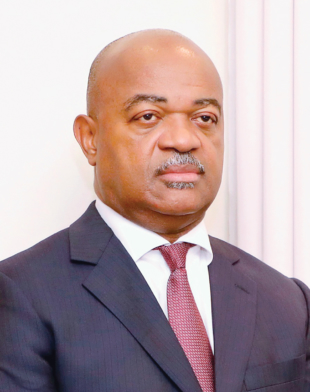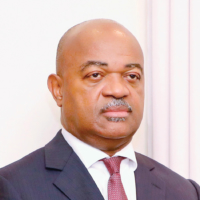Japan and Angola have established a strong relationship in information and communication technologies with an eye to embracing a digital future.
“For example, we are currently collaborating with Japan on the design and development of a road map for digital terrestrial television. We are adopting Japanese standards for this technological endeavor,” said Minister of Telecommunications, Information Technologies and Social Communication Mario da Silva Oliveira.

“Furthermore, the Japan Bank for International Cooperation was the primary financier of our South Atlantic Submarine Cable System, which was completed in 2018,” he added. Installed by NEC Corp., the SACS fiber-optic link runs from Angola to Brazil and was the first direct digital connection between Africa and South America. As a result of Angola’s investment in this and other global submarine cables, over 70% of all African internet traffic now utilizes the country’s digital infrastructure. “Angola is committed to becoming a telecommunications leader and hub in the region,” Oliveira explained.
Japan was also the first supporter of Angola’s space program, which was set up in 2012. “We have been working closely with Japan on this, both in general terms and especially in training,” he said. “And in 2023, we signed a new memorandum of understanding with Japan regarding training activities for our national space program.”
Angola’s impetus for entering the space industry was a recognition that investing in satellite infrastructure was the quickest way to promote widespread digitalization in a vast country that spans almost 1.3 million square kilometers. In 2022, it launched its second satellite, Angosat-2, which uses new-generation high-throughput communication technologies. “We are now leveraging Angosat-2’s resources to deploy free-to-use internet access points and fixed telephony installations in remote areas where there is no mobile coverage,” Olivera said.
As well as connecting people, Angola is using satellite technologies to develop its economy. Zolana Joao is the general director of the National Space Program Management Office, which oversees space activities. He said: “In our pioneering Earth Observation Program, we’re integrating artificial intelligence with satellite imagery to create custom-designed products that cater to vital economic sectors. For instance, we have developed programs that detect oil spills, assess crop health and monitor mining explorations. We’re not just developing space solutions, we’re developing a support system for our country’s economy. We’re at the forefront of space technologies and are excited about their potential.”
Going forward, Angola wants to expand its digital capabilities by launching more satellites and extending its land-based fiber-optic network. According to Oliveira: “Through collaboration with other countries, Angola is also seeking knowledge to advance in technology industries, including the manufacturing and assembly of equipment, such as routers, radios, antennas, cabling and switches. The goal is to create job opportunities.”
Around 35 million people live in Angola and 64% of them are under 25 years old. “One of our major challenges is youth unemployment,” Oliveira said. “Therefore, our aim is to establish a robust technology industry that can produce equipment locally. Angola is a country of the future, and it has a very valuable human resource: young, highly creative people who are thirsty for work.”
Joao agreed that the nation’s young population is a significant advantage for fostering growth, as well as for international partners and investors.
“However, it’s not just about our young people and the technology sector — all of Angola’s industries are hungry for collaboration,” he said. “Angola has huge untapped potential. If Japan shared its technological advances with Angola, we could accelerate progress by transferring knowledge, tools and best practices. Sectors such as health care, education and sustainable infrastructure, for example, would benefit immensely. Let’s build bridges, solve problems and make collaborations between Japan and Angola thrive.”
https://info.japantimes.co.jp/international-reports/pdf/20250428-GI-Angola.pdf
https://global-insight.net



